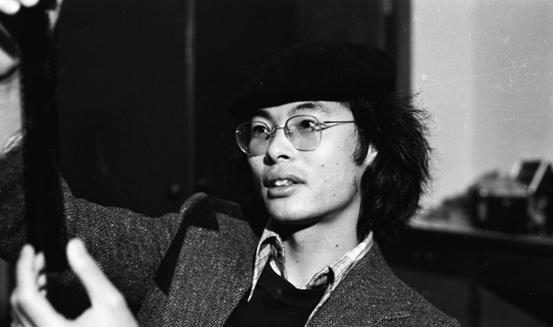The first stop of the 6th Hong Kong Theme Film Festival in Beijing was finally fortunate to see one of the masterpieces of Hong Kong New Wave cinema on the big screen, "Half a Man".
In the 1980s, the New Wave of Hong Kong cinema began with a younger generation of Hong Kong television directors. During the New Wave of Hong Kong cinema, a large number of outstanding directors and excellent film works emerged, with different styles, such as Xu Ke and literature and art such as Hui Anhua; personally, I think the most unique of them is Fang Yuping.

Different from the conventional perception of film shooting, Fang Yuping has always insisted on shooting realistic subjects in a documentary way, and the actors also choose non-professional actors, and they are more improvised during shooting. "Because I have always been a scholar of journalism and communication, I have been somewhat influenced by the ideal that journalism is the conscience of society and that it is necessary to expose the dark side of society fairly and objectively."
For him, the film is more like an experimental record of testing the boundaries between "truth and art", and each work comes from the director's own feelings about reality, "Father and Son", "Wild Child", and "Half the Man".
The birth of "Half the Man" is to commemorate Director Fang Yuping's friend, Ge Wu (the prototype of Zhang Songbai); Xu Suying, who plays the heroine Ah Ying, is also the prototype himself.
The protagonist of the film "Half the Man" sells fish, Ah Ying, who is busy in the fish stall all day, and her emotional life is not smooth. In order to live a better life, Ah Ying went to the Film Culture Center as a working student, and met Zhang Songbai, a drama teacher and director who returned to Hong Kong from the United States, in class, and various stories occurred between the two. In the end, Zhang Songbai returned to the United States in order to treat leg diseases, and Ah Ying also started a new life because of this experience.
The story is actually plain, there is no plot twist and turn, as if everything happens so simply, usually like three meals a day. To discuss the profound meaning behind the story, it seems to be some clichéd topic, dreams, love, life, family.
In fact, the biggest significance of this film lies in the high degree of unity of the film's processing methods and content in the sense of reality, and many scene characters in the film do not make prior arrangements, but act according to the original appearance and let the story come out on its own. In addition to the director's consistent artistic persistence, this treatment also reproduces the details of life to the greatest extent, close to the original appearance of life, and ensures the realism of the film. When there is no trace of acting, the story is naturally true.
It is true that Zhang Songbai (Ge Wu) is torn back and forth between insisting on art and balancing business, and it is true that Ah Ying is struggling between the current difficulties and the vision of the future; looking around at today's Chinese films, the most real thing is the sentence "Chinese films have made you look like this, and even the films are not properly played." I am afraid that the director himself did not expect that after more than twenty years, he would say a word.
The first time I watched it, I was still a student, and at that time I just lamented that the road of art was really difficult; after nearly two years, the second time I watched, I finally had the opportunity to sit in the theater and watch it again, and finally I could slightly understand the good intentions of some directors who poured into the film, and I admired the director's own consistent adherence to art; I don't know how I will feel when I watch it for the third time.
(Author: Xifu Dao Xiaolu Brother)